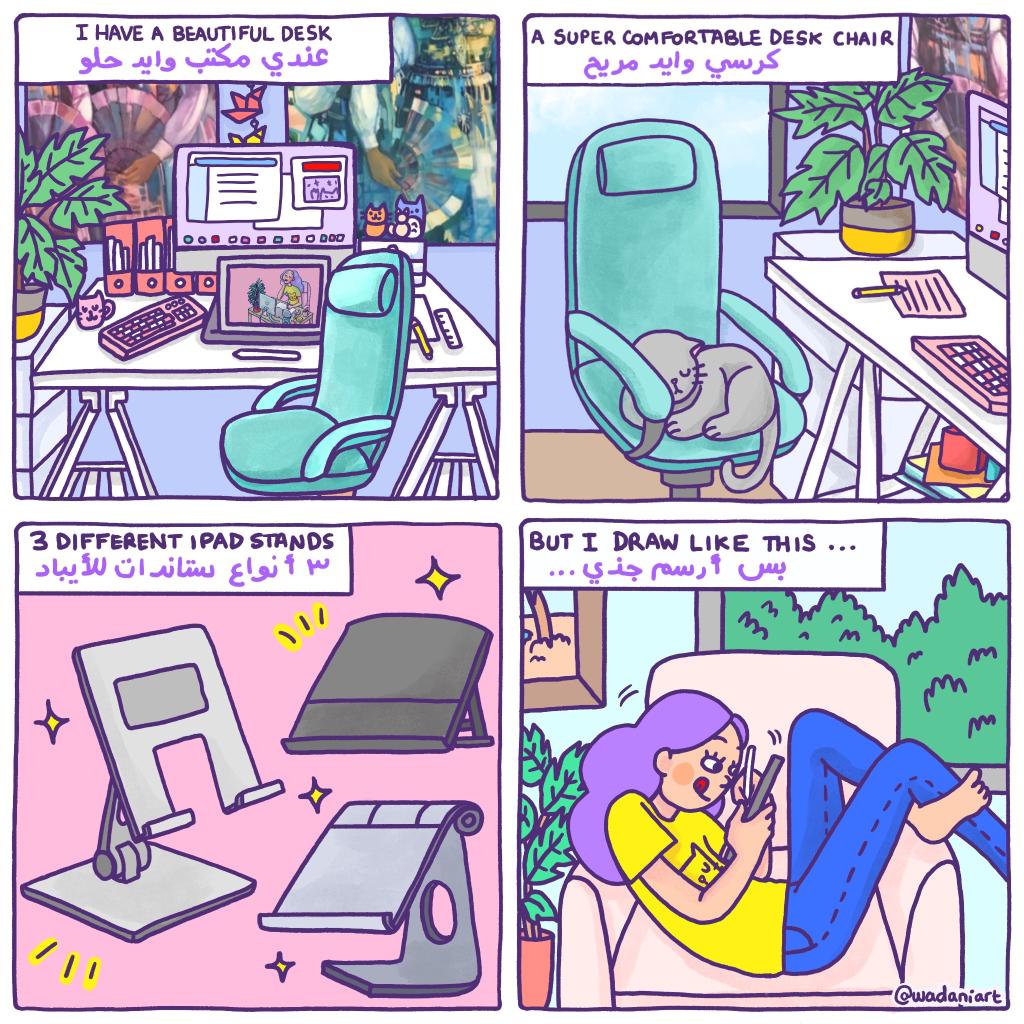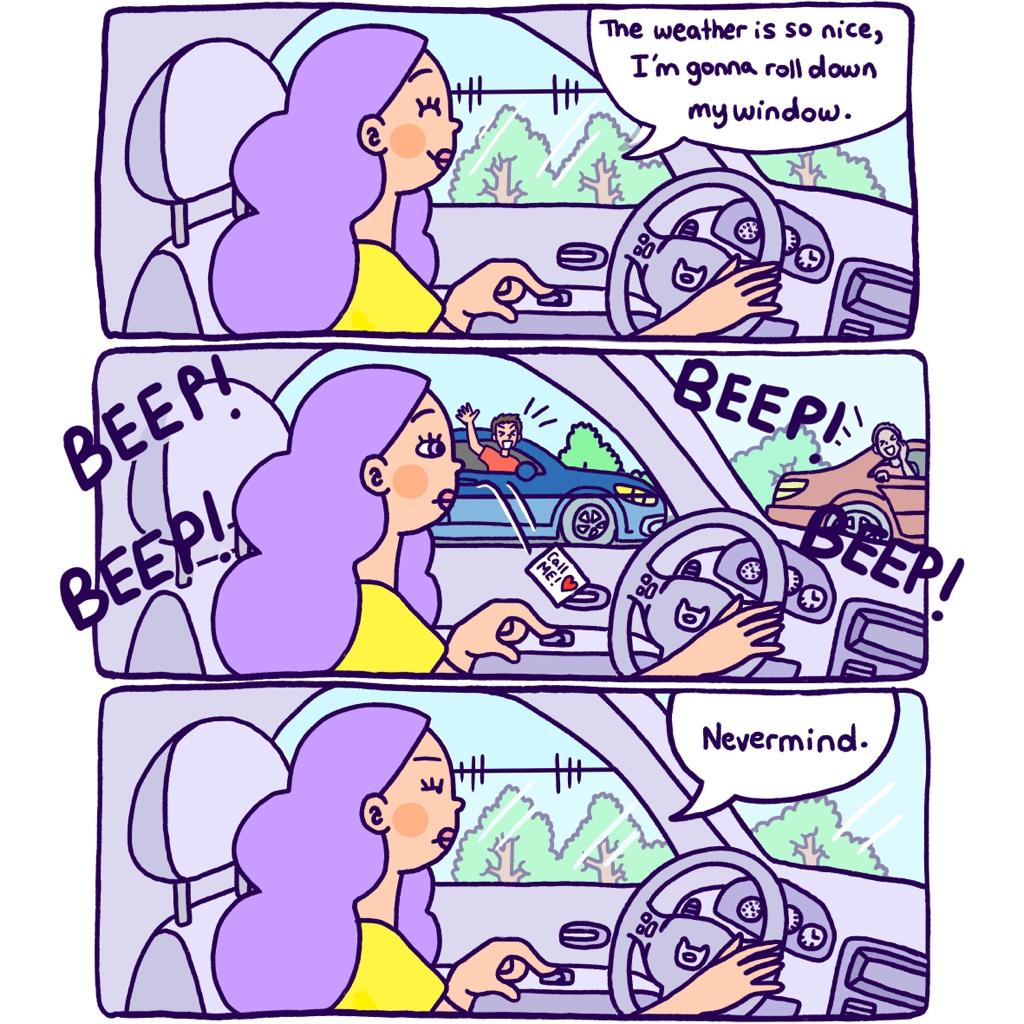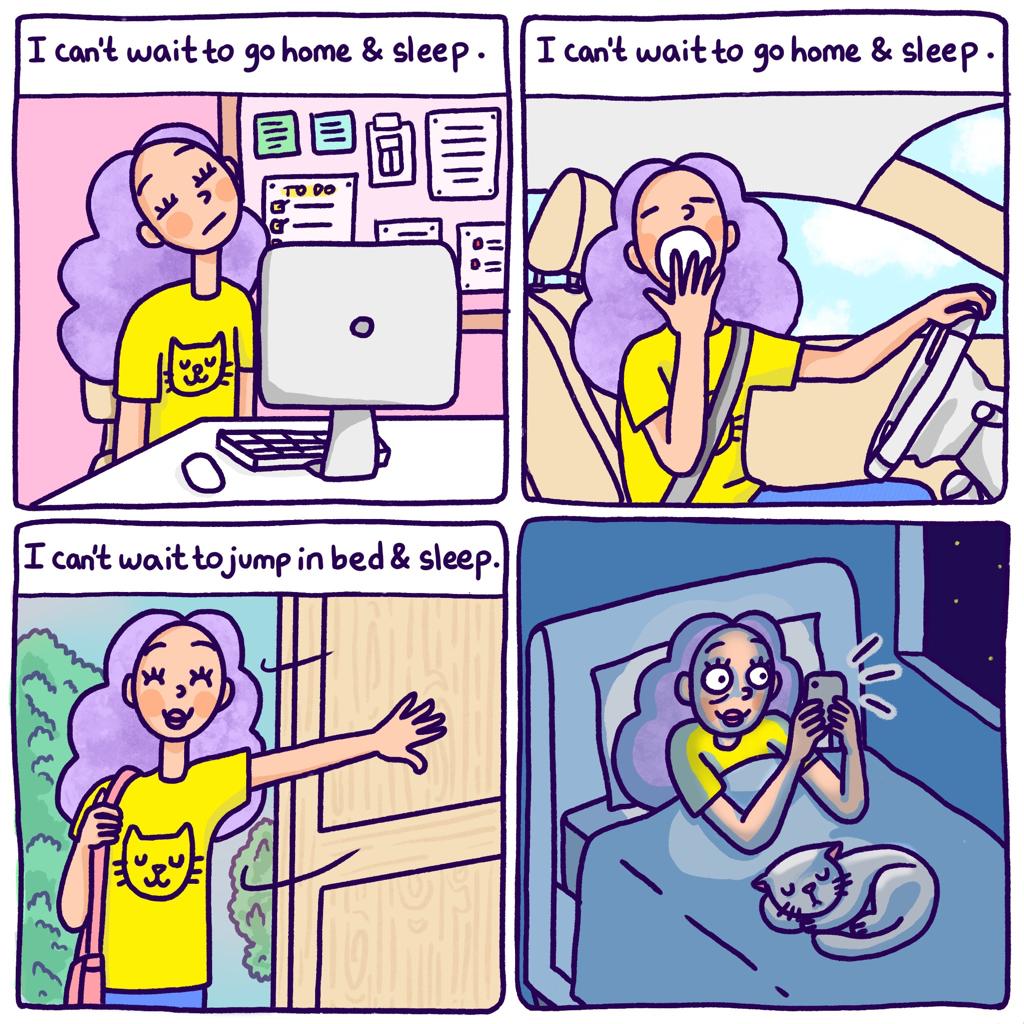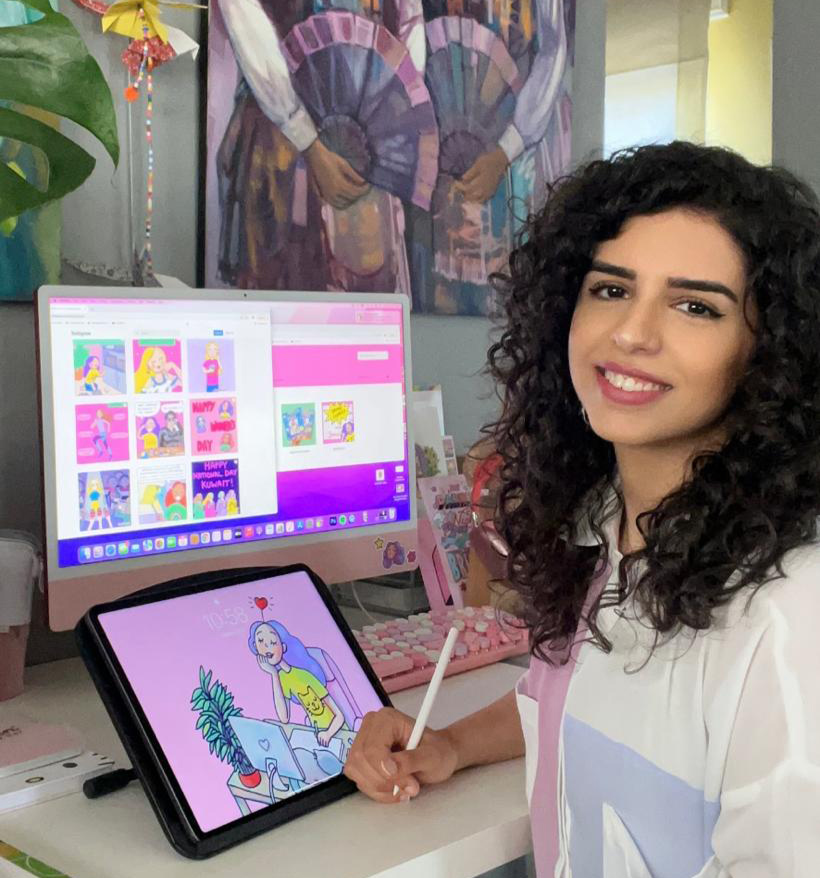By Majd Othman
KUWAIT: Digital comic art is not only a way to comment on current issues or daily social situation, but it sometimes serves as a way for stress relief from several situations or things we don't like, whether for the artist or the person who reads it. 'Shalala Thoughts' provides cool, funny and simple content in which the artist highlights through her comics many of the issues that people face. Her style has attracted lots of readers due to her topics that are close to people's daily life situations. Kuwait Times met Shahed, the artist behind Shalala Thoughts to learn more about the project. The following are excerpts from the interview.
Kuwait Times: Why did you choose this name?
Shalala Thoughts: My name is Shahed, but my friends gave me this nickname in college after someone mistakenly called me Shalala. Since then, everyone has been calling me by that name. And it is now the name of the main character in my Shalala Thoughts comics.
KT: When did you start your comic journey?
Shalala: I started drawing when I was five years old. My mother enrolled me in an art exhibition when I was six years old, and I drew my paintings with 3D, which drew the attention of the people in the exhibition. People advised my mother to encourage me to pursuit my art journey, and she did. My beginning was drawing with oil colors, and I did my first solo exhibition in Kuwait when I was 12 years old. After that, I participated in international art galleries in places like Malaysia, Dubai and Lebanon.
After that, my artistic direction was heading toward comics. I actually did my first comic book when I was 10 years old, and continued doing some comic arts during my time at university. I became the official comic artist of the university's newspaper. My first digital comic art was the day I established Shalala Thoughts in 2015. There was a lack in Arabic comics back then, and at the same time the way that cartoons were drawn then portrayed women in a very aggressive and vulgar way. Therefore, I wanted to deliver my thought in a nicer way.
KT: What are the issues that you like to highlight the most?
Shalala: I used to focus mostly on women's issues in Arab societies and their struggles in generals. After I felt that I vented out my frustrations through my comics, I start focusing more on daily situations that happen with my friends and people I know, and portray them in funnier and lighter ways. Especially in Kuwait; you can find many material to build comics on. I have recently started working on funny situations that I have been through when I was young.



KT: Tell us more about your characters.
Shalala: Most of my contents are about girls. Beside the main character Shalala and her cat, every character represents a specific type of girls. The two characters I use the most in my comics are Shalala and the pregnant girl 'Ghaya' who represent pregnant women in general. I am surprised that every comic I do about her becomes the most viral one internationally.
There is Shalala's mother that I used her to talk more about the relationship between mothers and daughters in Arab societies, because I think there is much tension and issues between them. I also used Shalala's grandmother in my comics.
KT: Are you willing to talk about politics in your comics?
Shalala: I do not prefer heading toward politics, but everything that provokes me, I like to mention it in my comics, such as injustice, women issues, pollution, and recently I talked about the way the people treat their maids, as well as dealing with animals.
KT: Some of your comics were published using videos. Do you think that it helps getting closer to people?
Shalala: Defiantly, especially with the new upgrade in social media that is trying to push the content to using videos more than pictures. For me, the problem is that videos take longer time to be ready. For a 10-second video, it can take three weeks to be ready, while the regular comic would take one to two days, not to mentions that many people like comics more than videos.
KT: In your point of view, what makes your comics special?
Shalala: Reading and making the most of people's opinions helped me improve my comics. Therefore, I started using less colors in the comics and make them more comfortable to the eye. This action has attracted more people to my comics, while the delivered message is strong and direct to the point.
KT: Was there any cooperation with third parties?
Shalala: I did several workshops about my comic journey with well-known brands such as Apple, Sephora, PotteryBarn. I published my comics in the American Buzzfeed and they were the only place that paid for my art. It is funny because I contacted the local newspapers and magazines in Kuwait and they refused to pay for my comics after publishing while they offered me to do it for free.
On other hand, I published my work through social media platforms other than Instagram, and whose audience are not Arabs, and I am always surprised with their feedback because even though the comics are in Arabic and it talk about our local issues, they were relating to it. Meanwhile, my comics were translated by individuals to different languages such as Spanish, Portuguese and other languages I don't even know.














